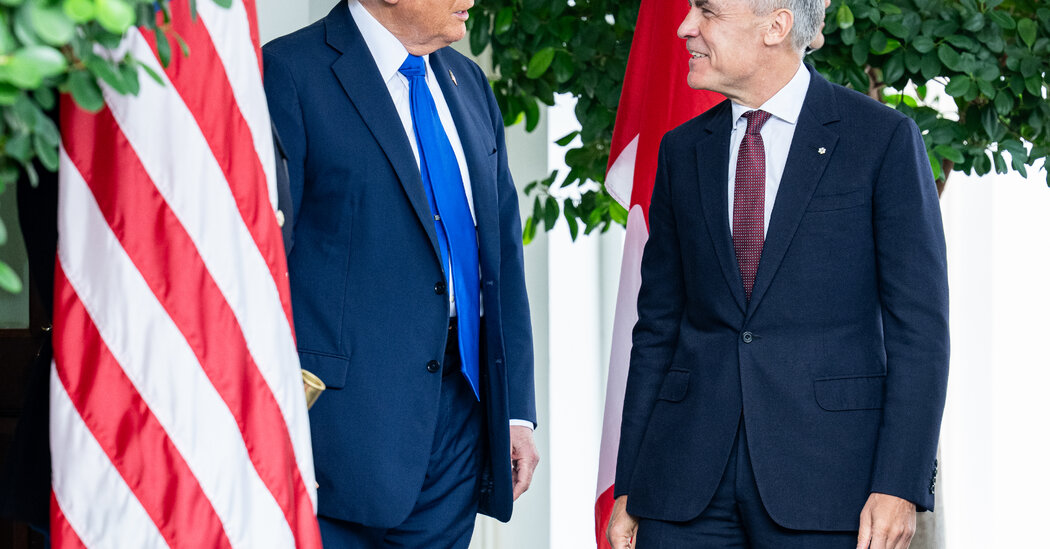Canada’s strategy for dealing with President Trump was on full display this weekend, reinforcing the country’s approach amid a turbulent trade relationship: Remove all irritants.
The latest tussle involved an advertisement, paid for by the Ontario government, that used audio from an address by former President Ronald Reagan criticizing tariffs.
Mr. Trump, who called the advertisement “fraudulent,” suspended trade talks with Canada and said he would slap another 10 percent tariff on its goods as punishment.
The ad will stop airing on Monday, Doug Ford, the Ontario premier, announced on Friday, after speaking with Prime Minister Mark Carney.
Canada has made important concessions to try to lay the groundwork for productive trade talks, walking back retaliatory tariffs and, in June, suspending a tax on American technology companies. (Mr. Trump threatened to end negotiations until the tax was lifted.)
Now, Mr. Carney has made it a new motto to tell the Canadian people that his only focus is on what the country can control, and that is to look for additional economic partnerships abroad, especially in Asia, where he is currently meeting with leaders.
Mr. Trump’s political opponents have criticized his reaction to the Reagan advertisement as a sign that he can easily be stirred into making decisions that will ultimately hurt Americans, who are likely to absorb the cost of the tariff.
Canada is counting on anger among Americans and from U.S. industries that rely on Canada’s steel, aluminum, lumber and potash, which have been hit hard by tariffs, said Fen Hampson, a political scientist and expert in U.S.-Canada affairs at Carleton University in Ottawa.
“Until Americans really start to feel the pain and make that clear to Donald Trump that he’s got to dial back on some of this, Canada’s approach is to kind of hunker down,” said Mr. Hampson.
While some Canadians have disapproved of Mr. Carney’s strategy as being too soft on Mr. Trump, the prime minister’s calculation seems to be that picking a fight with the American president will not make things any better for Canada.
“He doesn’t rise to the bait and take things personally,” Mr. Hampson said. “He understands that ultimately, time is on our side, that our own source of leverage comes from Americans who are unhappy with those tariffs.”
Vjosa Isai is a reporter and researcher for The Times based in Toronto, where she covers news from across Canada.
The post How Canada Is Dealing With Its Latest Tussle With President Trump appeared first on New York Times.




